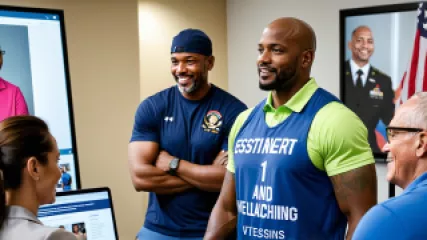Terapi Grundlæggende
Learning Therapy Techniques from Books and Movies
Introduction
Therapy is a powerful tool for personal growth, stress relief, and overall well-being. While traditional therapy sessions with a licensed professional are invaluable, there are also alternative ways to learn and incorporate therapy techniques into your life. One unique approach is to explore books and movies that portray therapy and mental health issues. By immersing yourself in these narratives, you can gain valuable insights and practical strategies to apply in your own life. In this article, we will delve into the world of therapy depicted in books and movies, highlighting key lessons and techniques that can enhance your well-being.
1. The Power of Mindfulness
Mindfulness exercises are frequently used in therapy to cultivate self-awareness and promote emotional regulation. One book that beautifully captures the essence of mindfulness is "Wherever You Go, There You Are" by Jon Kabat-Zinn. The author guides readers through various mindfulness practices, encouraging them to embrace the present moment and let go of distractions. By incorporating mindfulness into your daily routine, you can develop a greater sense of calm, reduce stress, and improve overall mental well-being.
In the movie realm, "Eat Pray Love" starring Julia Roberts showcases the transformative power of mindfulness. The main character embarks on a journey of self-discovery, exploring different cultures and spiritual practices. Through meditation and mindfulness, she learns to let go of past traumas and find inner peace. This movie serves as a reminder that mindfulness can be a vital tool in therapy, allowing individuals to connect with their emotions and find solace within themselves.
2. Emotional Expression and Catharsis
Expressing emotions is an essential part of therapy, and certain books and movies can provide inspiration in this area. One notable book is "The Bell Jar" by Sylvia Plath, a semi-autobiographical novel that explores the protagonist's struggle with mental health. Plath's raw and honest portrayal of the main character's emotions allows readers to connect with their own feelings and experiences. This book serves as a reminder that expressing emotions, whether through writing or other forms of creative outlets, can be cathartic and healing.
In the movie "Silver Linings Playbook," the main characters navigate their mental health challenges while developing a deep connection. Through their interactions, they learn the importance of honesty and vulnerability in therapy. This film emphasizes the power of sharing one's emotions and seeking support from others, highlighting the healing potential of genuine human connection.
3. Self-Reflection and Personal Growth
Self-reflection is a fundamental aspect of therapy, enabling individuals to gain insights into their thoughts, emotions, and behaviors. In the book "Man's Search for Meaning" by Viktor Frankl, the author reflects on his experiences as a Holocaust survivor and explores the concept of finding meaning in life. This powerful memoir encourages readers to reflect on their own values and purpose, fostering personal growth and resilience.
The movie "Good Will Hunting" tells the story of a brilliant but troubled young man who undergoes therapy to address his emotional struggles. Throughout the film, the protagonist engages in profound self-reflection, leading to transformative personal growth. This movie reminds us of the importance of introspection and self-exploration in therapy, as it can uncover hidden strengths and facilitate positive change.
4. Building Resilience and Coping Skills
Therapy often focuses on building resilience and developing effective coping skills to navigate life's challenges. The book "The Four Agreements" by Don Miguel Ruiz offers practical wisdom for personal transformation. The author presents four guiding principles that, when applied, can help individuals cultivate resilience, improve relationships, and foster personal well-being.
In the movie "Finding Nemo," the beloved fish character, Dory, showcases resilience and coping skills in the face of adversity. Despite her memory loss, Dory remains optimistic, resourceful, and determined. This movie serves as a reminder that resilience can be cultivated even in the most challenging circumstances, inspiring viewers to develop their own coping mechanisms.
Conclusion
While therapy sessions with professionals are invaluable, books and movies can provide complementary insights and techniques for personal growth. By exploring narratives that delve into therapy and mental health, you can learn valuable lessons about mindfulness, emotional expression, self-reflection, and resilience. Incorporating these techniques into your life can enhance your overall well-being and promote personal growth. So, grab a book or watch a movie, and embark on a journey of self-discovery through the lens of therapy.















